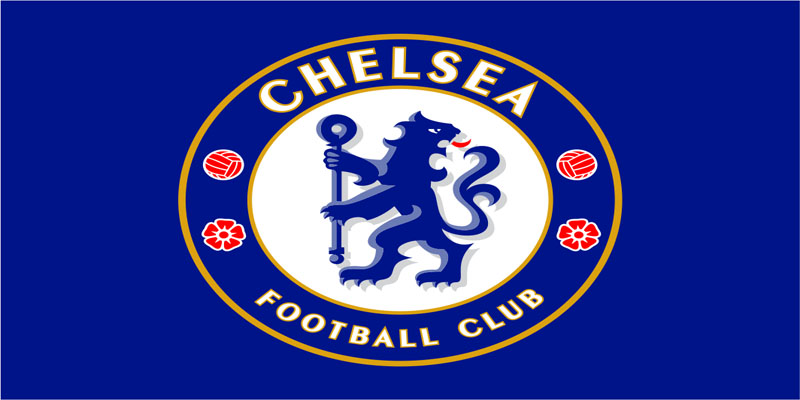Chelsea Football Club isn’t just a football team – it’s a symbol of triumph, resilience, and ambition. Since its inception in 1905, Chelsea has redefined the landscape of English football, accumulating a remarkable legacy of trophies and iconic moments. From ABC8 unforgettable comebacks to world-class players, the Blues have etched their name in the hearts of millions. What fuels their ongoing success? Join us as we explore the driving forces behind Chelsea’s incredible journey, from historic milestones to the players who shaped their rise to glory.
The History of Chelsea Football Club
Understanding the present requires knowledge of the past. Chelsea Football Club’s history is rich and multifaceted, characterized by triumphs, challenges, and transformation.
Foundation and Early Years
Chelsea FC was established in March 1905 by Gus Mears, who purchased the Stamford Bridge athletics ground. Initially, there were hopes to use the ground for cricket, but Mears’ vision quickly shifted to football when he saw the potential of establishing a football club.
The early years were marked by fluctuating fortunes in the league, but Chelsea quickly gained a reputation for being a club that embraced flair and creativity on the pitch. The club’s first significant achievement came in 1907 when they finished third in the First Division, paving the way for future success.
Despite financial struggles during World War I, Chelsea managed to maintain its position in the football hierarchy. The club’s resilience and dedication laid a solid foundation that would serve them well in the years to come.
The Golden Era of the 1960s and 70s
The 1960s and 70s heralded a transformative period for Chelsea FC. Under the management of Tommy Docherty, the club began to flourish, showcasing brilliant talents such as Peter Osgood, who became a beloved figure among supporters.
The pinnacle of this era arrived in 1970 when Chelsea won their first FA Cup, defeating Leeds United in a dramatic final. This victory ignited a wave of enthusiasm among fans and established Chelsea as a formidable presence in English football.
However, the subsequent decade presented challenges as the club faced relegation and financial difficulties, prompting a rethink of their approach. Learning from adversity, Chelsea emerged stronger, setting the stage for future successes.
The Renaissance in the 1990s
The late 1990s marked the beginning of a new chapter for Chelsea FC. A change in ownership brought fresh investment and ambition to the club. Under the stewardship of Ken Bates, Chelsea began to attract high-profile players and managers, signaling a new era.
In the 1996-97 season, Chelsea clinched the FA Cup, marking their return to the top with a renewed sense of purpose. The club’s style of play became more sophisticated, reflecting the tactical evolution of the game and resonating with fans who craved exciting football.
As the dawn of the 21st century approached, Chelsea was well-positioned to fulfill its ambitions of becoming one of England’s leading football clubs.
Iconic Players and Managers
Throughout its storied history, Chelsea Football Club has been blessed with numerous iconic players and managers who have left an indelible mark on the club’s legacy.
Legendary Players
When discussing Chelsea FC, it’s impossible not to mention some of the legendary players who have donned the blue jersey. The likes of Frank Lampard, John Terry, Gianfranco Zola, and Didier Drogba stand as testimony to the club’s illustrious past.
Frank Lampard is arguably one of the greatest midfielders in the history of the Premier League. His goal-scoring prowess, leadership qualities, and football intelligence made him an integral part of Chelsea’s success. Over his 13-year career with the club, Lampard became the all-time leading scorer, cementing his status as a club legend.
John Terry, the talismanic captain, epitomized the grit and determination associated with Chelsea. His exceptional defensive skills and on-field presence earned him the respect of teammates and opponents alike. Terry’s loyalty to the club and leadership helped steer Chelsea through turbulent times and led to numerous triumphs.
Gianfranco Zola introduced a flair and artistry to the team that left fans mesmerized. His skillful dribbling and vision created countless goal-scoring opportunities, and his time at Chelsea is remembered fondly by supporters.
Didier Drogba’s impact transcended his contributions on the pitch. His historic goals in crucial matches, especially in finals, made him a hero among Chelsea fans. Drogba’s ability to perform under pressure and his charismatic personality have etched his name into the hearts of many.
Influential Managers
Behind every successful football club lies a strong managerial foundation. Chelsea has seen some remarkable managers throughout its history, each with their unique philosophies and contributions.
One cannot speak of Chelsea Football Club without mentioning José Mourinho. His first stint at the club during the mid-2000s brought unprecedented success, including back-to-back Premier League titles. Mourinho’s tactical acumen and charisma transformed Chelsea into a dominant force, emphasizing a winning mentality and instilling belief among players.
Another noteworthy figure is Carlo Ancelotti, who guided Chelsea to a historic double in the 2009-2010 season. Ancelotti’s calm demeanor and ability to manage star-studded squads allowed the team to flourish and adapt to various styles of play.
More recently, Thomas Tuchel has continued to build on Chelsea’s legacy. His tactical flexibility and focus on team cohesion led to impressive performances and a stunning victory in the UEFA Champions League. Tuchel’s arrival signified a commitment to excellence and the desire to compete at the highest level.
Conclusion
The journey of Chelsea Football Club is a continual narrative, shaped by the people connected to it—players, fans, and everyone involved in the club’s operations. As the club moves forward, embracing innovation, nurturing talent, and engaging with its community, the pulse of Chelsea Football Club will undoubtedly continue to echo through the halls of football history.
